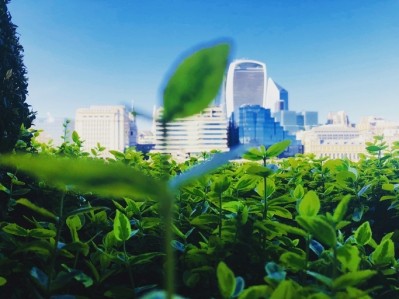COVID-19 has ‘knocked’ green consumerism: Survey
Aviva’s How We Live survey of 4,000 UK adults – conducted by Censuswide Research – showed 52% of people say they are more ‘environmentally conscious’ now than they were before the pandemic hit. Two-fifths claim to be ‘a lot’ more environmentally aware.
However, it would appear this is not translating to action. The insurance firm found people are taking ‘considerably fewer’ steps towards sustainable consumption than they were in December 2019, when a comparable survey was conducted.
In 2019, 37% of people reported eating local and seasonal produce to reduce food miles. This figure had fallen to 25% by February 2021.
The number of households that claimed to be cutting meat consumption stood at 31% in December 2019, compared to 21% of respondents in early 2021. Meanwhile 5% of people reported being vegan in 2019, compared to 4% in 2021.
There was also a big drop in recycling rates: from 73% of people who said they recycled in 2019 to 51% who claimed to do so in 2021. And while single-use plastics was an issue that galvanised public opinion pre-COVID, when 61% of people avoided it, this figure fell to just 36% in February.
Aviva stipulated that some people’s green intentions may have been limited by lockdown restrictions. But added that the trend can be seen across ‘all categories’ that the insurance company examined.
Green behaviour | Percentage of people doing Dec ‘19 | Percentage of people doing Feb ‘21 |
Recycling through local bin collections | 73% | 51% |
Giving unwanted items to charity shops | 67% | 43% |
Avoiding single-use plastic items | 61% | 36% |
Turning down the thermostat at home | 59% | 27% |
Reducing how often you use your car | 34% | 26% |
Eat local/seasonal vegetables/fruit to reduce food miles | 37% | 25% |
Reducing the amount of meat eaten in your household | 32% | 21% |
Buying second-hand items / up-cycling | 40% | 20% |
Reducing how often you travel by plane | 22% | 17% |
Becoming vegan | 5% | 4% |
“This may point towards a wider change in attitudes during the pandemic, potentially suggesting some people altered their behaviours as they adopted ‘survival’ mode and refocused their priorities.”
Older people ‘lead the way’ in ‘green living’
The 2019 and 2021 studies did reveal one consistency: older people are more likely to adopt environmentally friendly actions than younger people.
Those aged 65+ are most likely to recycle their waste through local bin collections, buy seasonal fruit and vegetables, and - along with those aged 55-64 – avoid single-use plastic.
As a rule of thumb, the likelihood of adopting certain behaviours appears to increase with age. In all but two categories considered, under-25s are least likely to be undertaking these actions.
Notable exceptions relate to people adopting a vegan diet. Over-65s are least likely to be vegan, at just 1% of this age group, while 9% of under-25s say they eat a purely plant-based diet.
| All ages | 16-24 | 25-34 | 35-44 | 45-54 | 55-64 | 65+ |
Recycling through local bin collections | 51% | 26% | 36% | 41% | 52% | 67% | 73% |
Giving unwanted items to charity shops | 43% | 25% | 31% | 33% | 44% | 55% | 61% |
Avoiding single-use plastic items | 36% | 22% | 29% | 29% | 36% | 47% | 47% |
Turning down the thermostat at home | 27% | 16% | 19% | 22% | 30% | 37% | 32% |
Reducing how often you use your car | 26% | 14% | 21% | 23% | 25% | 32% | 38% |
Eat local/seasonal vegetables/fruit to reduce food miles | 25% | 18% | 20% | 21% | 24% | 31% | 34% |
Reducing the amount of meat eaten in your household | 21% | 16% | 20% | 18% | 23% | 24% | 20% |
Buying second-hand items / up-cycling | 20% | 20% | 21% | 19% | 23% | 22% | 15% |
Reducing how often you travel by plane | 17% | 14% | 13% | 10% | 16% | 20% | 25% |
Becoming vegan | 4% | 9% | 7% | 5% | 3% | 2% | 1% |
“This latest How We Live study suggests green ambitions are still strong within the UK, but they appear to have taken a knock. More than half of UK adults say they are even more environmentally conscious as a result of COVID-19 conditions, but the steps taken to support green living have fallen considerably since pre-pandemic days,” Gareth Hemming, Aviva MD of Personal Lines observed.
“This may be a result of practical limitations as the closure of shops and services may have hampered their environmental efforts, and we can hope that once people exit ‘survival mode’, their green behaviours will be boosted again.”








